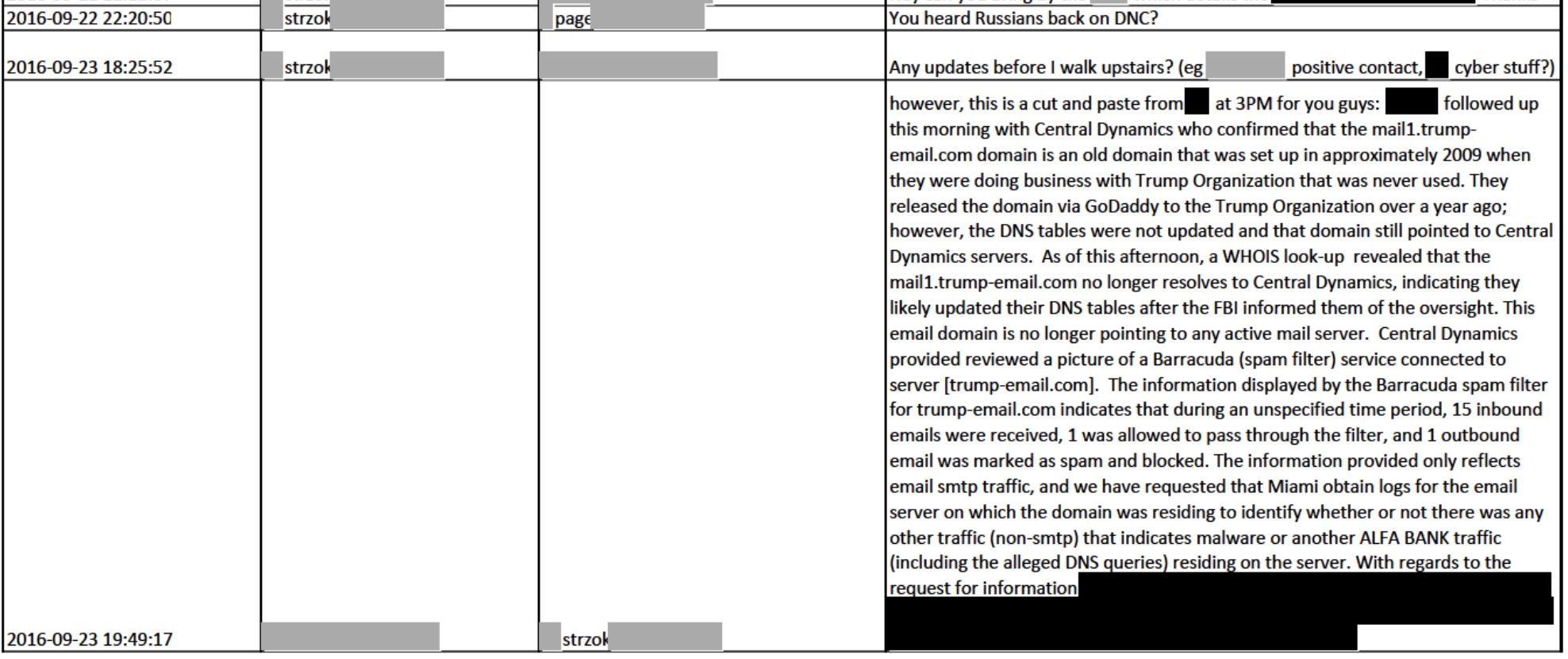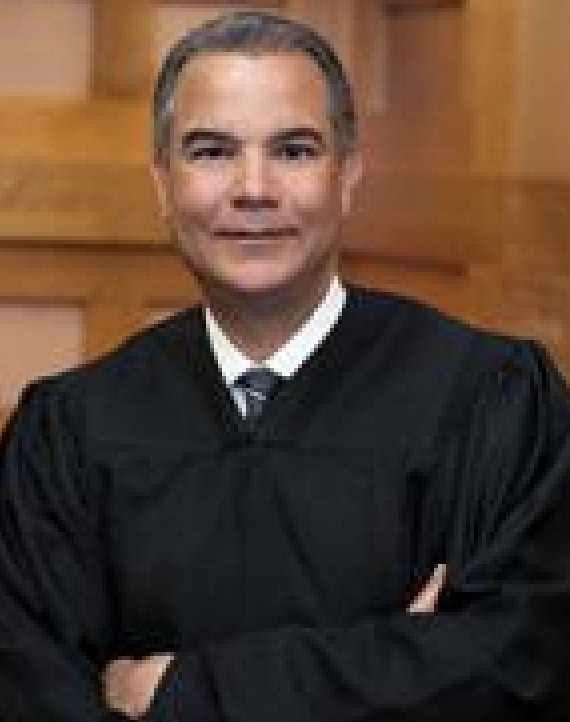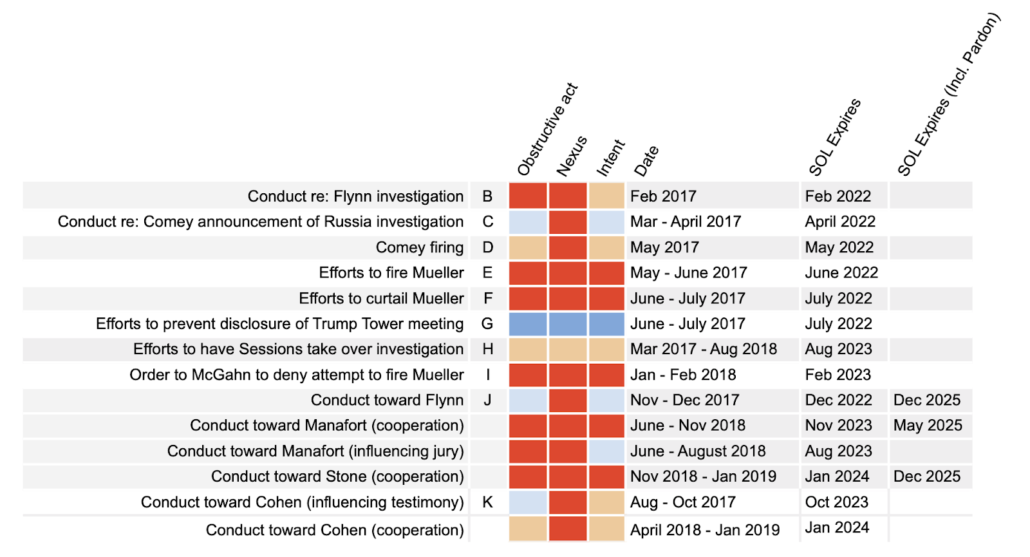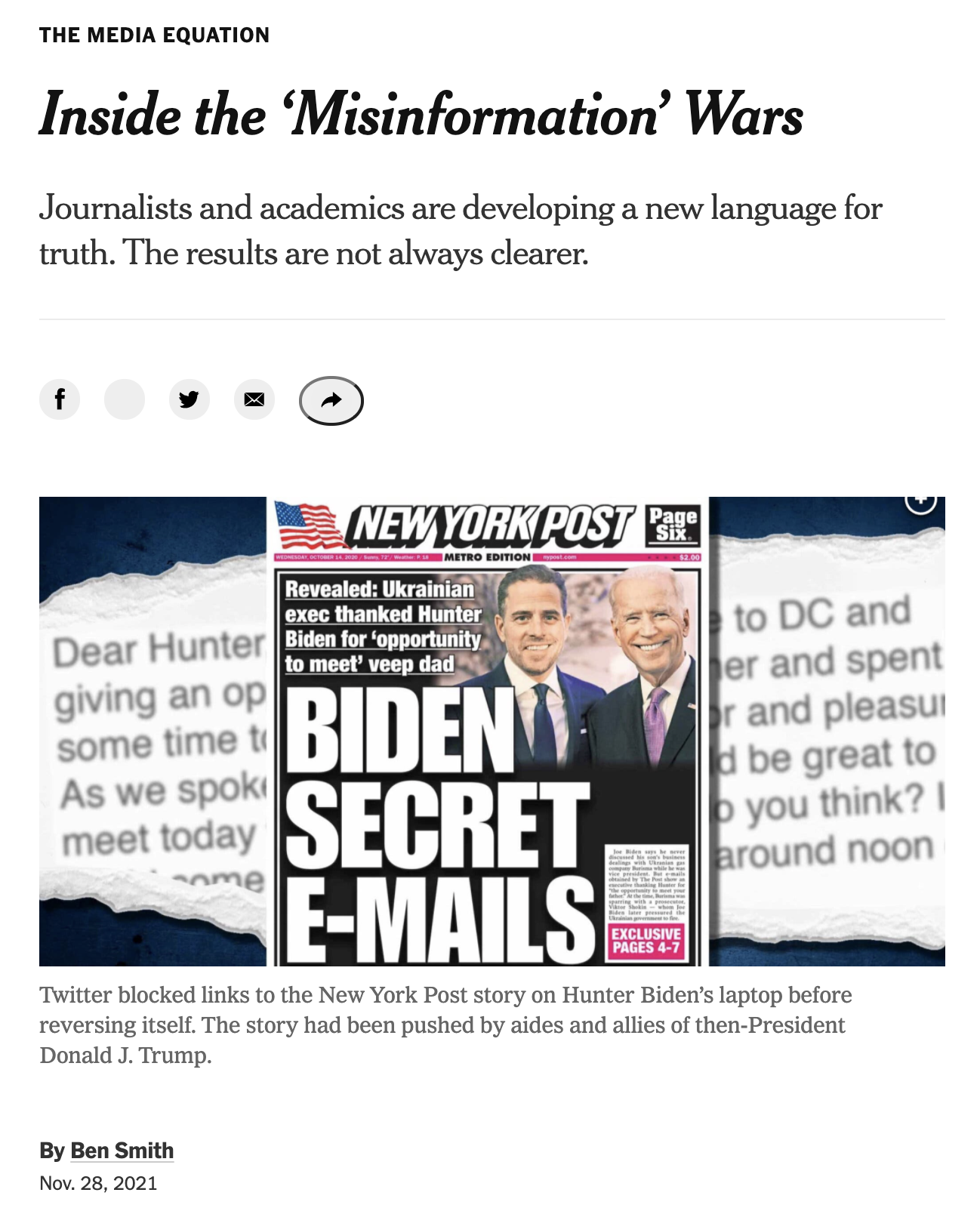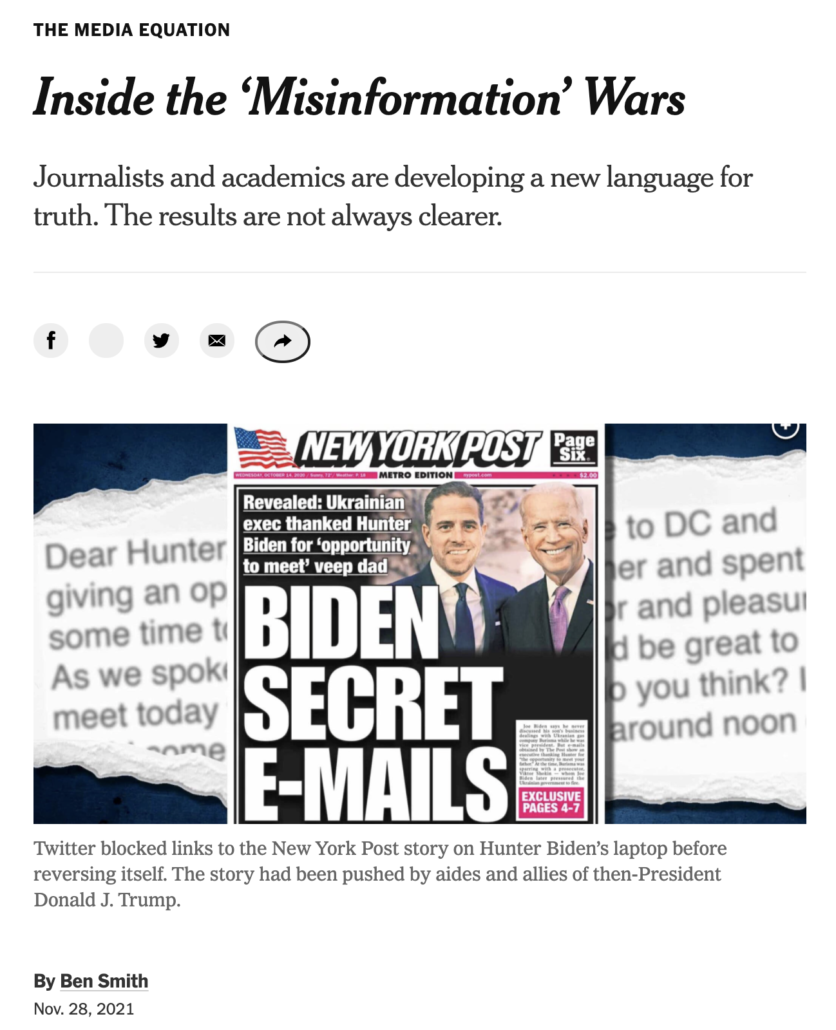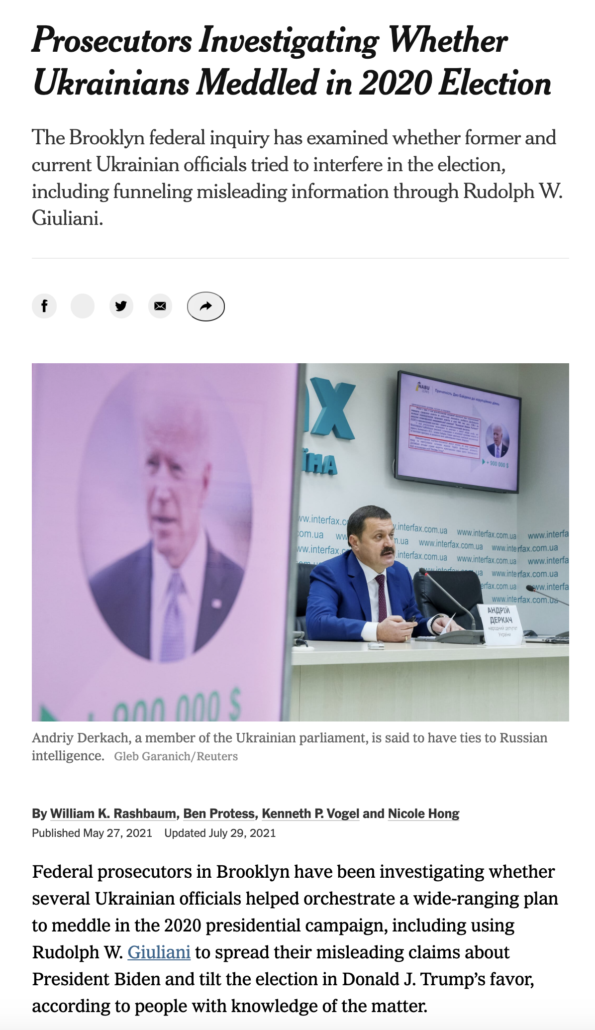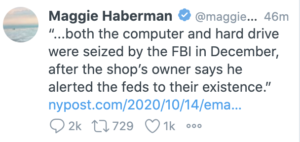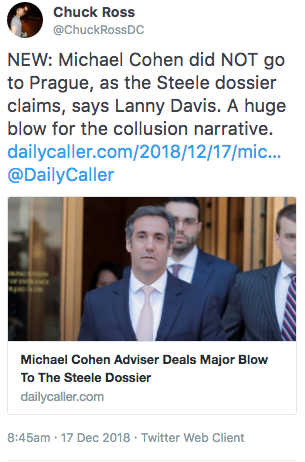On the Belated Education of John Durham
In a filing on September 2 in the Igor Danchenko case, John Durham confirmed that Danchenko had been a paid FBI source from March 2017 through October 2020.
In March 2017, the FBI signed the defendant up as a paid confidential human source of the FBI. The FBI terminated its source relationship with the defendant in October 2020.
I had heard this — though not with the sourcing such that I could publish. Apparently it was news to the frothers, who’ve been wailing about it ever since. Here’s Margot at the Federalist Faceplant, Jonathan Turley, and Chuck Ross at his new digs at the outlet that first hired Christopher Steele. Here’s the former President during an obsequious Hugh Hewitt interview.
Danchenko’s status was implicit in a lot of what is public. Even absent the frothers doing any kind of journalism, or even critical thinking, what did they think this reference in Danchenko’s motion to dismiss meant?
The government had unfettered access to Mr. Danchenko for approximately four years following his first interview in January 2017, and not once did any agent ever raise concerns about the now purportedly contradictory post-call emails.
As I hope to show in a follow-up, it actually makes a lot of sense.
Meanwhile, in Danchenko’s response to that filing, he revealed that information he provided to the FBI was used in a memorandum supporting the opening of an investigation into Charles Dolan, one of Durham’s star witnesses against Danchenko. (Note, this reference stops short of saying that the FBI did open an investigation into Dolan, just that someone proposed doing so.)
[T]he Special Counsel ignores, and conceals from this Court, that Mr. Danchenko was interviewed dozens of times and during the course of those interviews, particularly when asked specific questions about Dolan (which was not often), Mr. Danchenko (1) told the FBI about the Moscow trips with Dolan, (2) told the FBI that Steele knew of Dolan, (3) told the FBI that not only was Dolan doing work with Olga Galkina but that Mr. Danchenko himself had introduced them, and (4) told the FBI that Dolan had connections and relationships with high-level Kremlin officials, including President Putin’s personal spokesperson, Dmitry Peskov. Indeed, when agents drafted a December 2017 communication in support of opening an investigation into Dolan, they included the information Mr. Danchenko provided them as support for opening the investigation. 3 [emphasis original]
This may not be the last surprise investigation we hear about. Back in the original filing on September 2, Durham argued he should be able to talk about the 2008 allegation that led to a counterintelligence investigation into Danchenko, in part, because (Durham predicted bitterly) Danchenko will likely raise investigations into others, plural, who will “feature prominently at trial.”
[T]he Government expects the defense to introduce evidence of FBI investigations into other individuals who the Government anticipates will feature prominently at trial. Thus, the introduction of the defendant’s prior counterintelligence investigation – should the defense open the door – does not give rise to unfair prejudice that substantially outweighs its probative value.
Effectively, Durham is arguing that if Danchenko points out that Durham’s witnesses should not be considered reliable based on suspicions they were working for Russia’s interests, then he should be able to point out that Danchenko was once similarly suspected as well. Durham also wants to point out that Dolan twice asserted that Danchenko might be a Russian spook, but also allegedly always knew of his role at Orbis — assertions that, in tandem, could actually hurt Durham’s case, given the subsequent disclosure that Dolan was investigated himself. Durham may not understand that, yet.
One of these people whose investigation Danchenko will raise at trial is undoubtedly Sergei Millian, whose cultivation of George Papadopoulos in exactly the same time period Danchenko claims to have believed he spoke to Millian was one of a number of things the FBI investigated starting in 2016.
Danchenko’s response to Durham’s demand that he be allowed to raise the 11-year old counterintelligence investigation into Danchenko (besides providing a somewhat different timeline) was basically to say, “Bring it!” He intends to raise that counterintelligence investigation himself, he claims. Note: Durham doesn’t note, but it is clear from the January interviews of Danchenko, that FBI interviewers probed Danchenko about that prior investigation in their very first interviews in 2017.
As noted, I hope to return to all this dizzying spy-versus-spy shit in a follow-up. By then we’re likely to have several more disclosures, plus some details about the known investigation into Millian.
This all shows there was not a shred of prosecutorial discretion exercised before charging Danchenko. Even if Danchenko had done grievous harm to the US, no sane prosecutor would have charged this case with such easily impeached witnesses. Even Durham now seems to understand his materiality claims are flimsy. And yet, to prove a five year old false statements allegation, he has forced the government to declassify a whole range of sensitive material, including this detail about Dolan.
And that process apparently continues to be a struggle for Durham (as I predicted it would be).
Consider the timeline implied by Danchenko’s footnote about the Dolan revelation. Danchenko claims that he only just learned about the Dolan investigation opening memo.
3 The December communication is highly exculpatory with regard to the essential element of materiality and it is not clear why it was only produced 30 days from the start of trial. It was produced as Jencks material (also late by the terms of the Court’s Order requiring all Jencks to be produced by September 1) but is obviously Brady evidence. The defendant understands that the CIPA procedures may have slowed the production of certain categories of discovery but given the Indictment’s allegations about the materiality of Mr. Danchenko’s failure to attribute public information to Dolan, the production of this specific document should have been a priority for declassification.
When Danchenko says that Counterintelligence Information Procedures Act may have slowed the production of this, he’s suggesting (charitably) that someone at DOJ took a long time to release this information to Durham and that Durham had no control over that process. That’s another thing I predicted in this post about how CIPA would affect this case: “it can end up postponing the time when the defendant actually gets the evidence he will use at trial. So it generally sucks for defendants.”
The trial starts on October 11. This footnote suggests that Danchenko only received this information 30 days before trial, so around September 11, in the week before he filed this. Whenever it was disclosed, if he received it after the September 1 deadline, that would make it too late for the September 2 deadline for Danchenko’s own motion to dismiss. It would put it after Durham’s September 2 filing — the one bitching about how much of the trial Danchenko will use to focus on the investigations into witnesses, plural, against him — which means the plural reference may not have incorporated Dolan. Danchenko would have learned about this over a month after his own deadline to lay out what classified information he intended to use at trial, and at least a week after the August 30 CIPA conference, at which the two sides debated about what classified information Danchenko should be allowed to use at trial.
It also comes after a series of delays in Durham’s classified discovery. In May, I described what was publicly billed as the last one.
It’s that record that makes me so interested in Durham’s second bid to extend deadlines for classified discovery in the Igor Danchenko case.
After Danchenko argued he couldn’t be ready for an April 18 trial date, Durham proposed a March 29 deadline for prosecutors to meet classified discovery; that means Durham originally imagined he’d be done with classified discovery over six weeks ago. A week before that deadline, Durham asked for a six week delay — to what would have been Friday. Danchenko consented to the change and Judge Anthony Trenga granted it. Then on Monday, Durham asked for another extension, this time for another month.
When Durham asked for the first delay, he boasted they had provided Danchenko 60,000 unclassified documents and promised “a large volume” of classified discovery that week (that is, before the original deadline).
To date, the government has produced over 60,000 documents in unclassified discovery. A portion of these documents were originally marked “classified” and the government has worked with the appropriate declassification authorities to produce the documents in an unclassified format.
[snip]
Nevertheless, the government will produce a large volume of classified discovery this week
This more recent filing boasts of having provided just one thousand more unclassified documents and a mere 5,000 classified documents — for a case implicating two known FISA orders and several past and current counterintelligence investigations.
To date, the Government has produced to the defense over 5,000 documents in classified discovery and nearly 61,000 documents in unclassified discovery. The Government believes that the 5,000 classified documents produced to date represent the bulk of the classified discovery in this matter.
Danchenko waited six weeks and got almost nothing new.
But then on August 16, Durham filed a supplemental CIPA filing, suggesting there were more substitutions of classified information he wanted Judge Anthony Trenga to approve (a supplemental filing is not, by itself, unusual).
The point is, for months, Durham kept saying he’d have all the secrets delivered to Danchenko by his new deadline in June, promise, and then he dropped this bombshell on Danchenko just weeks before trial.
In the August 29 hearing on all this, Judge Trenga deferred most CIPA decisions until after Danchenko files a new CIPA filing on September 22 — so if any of this remains classified, Danchenko still has a chance, with just days notice, to argue he needs it at trial. They’ll fight about these issues again on September 29.
But given Durham’s performance in the Sussmann case, it’s not entirely clear these missed classified deadlines are DOJ’s fault. After all, Durham never even asked DOJ IG for relevant discovery in Sussmann’s (and therefore, we should assume, this) case until after Sussmann was charged. He didn’t investigate Rodney Joffe’s true relationship with the FBI and other agencies until Sussmann asked him to. He didn’t ask Jim Baker for his own iCloud content until early this year, after belatedly rediscovering Baker phones he had been told about years ago.
It’s not just his belated request for information from DOJ IG that we know to have affected this case too. Durham also has never interviewed George Papadopoulos — not before he went on a junket to Italy chasing Papadopoulos’ conspiracy theories, and not since. Thus, Durham never tested whether Millian’s cultivation of Papadopoulos undermines his evidence against Danchenko — and it does, obviously and materially.
Because of Durham’s obvious failures to take the most basic investigative steps before charging wild conspiracy theories, there are several possible explanations why he’s only providing Danchenko news of this Dolan memo a month before trial:
- Someone tried to hide this from Danchenko and ultimately was overridden. If that’s the explanation, it makes Andrew DeFilippis’ August departure from the team and, according to the NYT, DOJ, all the more interesting.
- DOJ delayed the time until they let Durham disclose this because of some sensitivity about the investigation. Recall that Dolan has ties to Putin spox Dmitri Peskov, who was sanctioned earlier this year, followed by his family.
- Durham didn’t know.
The last possibility — that Durham had no fucking clue that one of his star witnesses had been (at least considered) for investigation — is entirely plausible. It’s entirely consistent with what we saw in the Sussmann case, though worse even than that case in terms of timing.
Durham came into this investigation treating the conspiracy theories of Papadopoulos and Trump as credible. He seems to have believed, all along, that Sergei Millian was a genuinely aggrieved victim and not someone playing him, for at least a year, for a fool. He seems to have decided that he knew better than FBI’s experts about who had credibility about Russia and who didn’t. Along the way he forced the FBI to cut its ties with Joffe and — given the October 2020 cut-off of Danchenko’s ties to the FBI, probably Danchenko as well. He did all this with a lead prosecutor who believed it was problematic for DARPA to investigate the Guccifer 2.0 persona used by the GRU.
Durham walked into this investigation believing and parroting, without first testing, Trump’s claims that the Russian investigation was abusive. Based on those beliefs, he chased all manner of conspiracy theory in an attempt to allege pre-meditation and malice on the part of Hillary and everyone else involved with the dossier. His Sussmann prosecution ended in humiliating failure. This prosecution, win or lose, may do worse for Durham’s project: it may reveal unknown details about Russian efforts to tamper in 2016, efforts that harmed both Republicans and Democrats alike.
The Durham prosecutions have been shitshows and undoubtedly a disaster for those targeted. It’s not yet clear what will happen with the Danchenko trial (or even whether it will go to trial; given that CIPA issues still have to be resolved, there’s still a chance Durham will have to dismiss it rather than going to trial). Durham will still write a report that may try to resuscitate his conspiracy theories that were disproven in the Sussmann trial.
But thus far, the actual record of the Durham investigation shows that when actually bound by the rules of evidence, when actually obligated to dig through DOJ’s coffers to discover what DOJ learned as it tried to understand Russia’s intervention in 2016, reality looks nothing like the conspiracy theories Durham has chased for three years.
John Durham’s education process has been a painful process for all personally involved (except maybe Sergei Millian, gleefully dicking around from afar). But along the way he’s debunking many of the conspiracy theories he was hired to sustain.
Update: Chuck Ross is outraged that I suggested his boss had paid for Steele (and lying that I said Paul Singer paid for the dossier, which I pointedly did not say). It is true that the payment for Fusion GPS’ Trump project had shifted to Perkins Coie before Steele first sent Danchenko to Russia.
It’s also true that, based on length of project, Ross’ current boss paid for much of Nellie Ohr’s work on Trump’s ties to Russia, which includes some of Fusion’s early work on Paul Manafort and Felix Sater, and possibly early work on Millian (she continued to work on Millian until she left Fusion).
And since Chuck is so upset, I should point out that his former co-columnist, Oleg Deripaska, also reportedly paid for Steele’s work (in that case, research on Paul Manafort), though also through the cut-out of a law firm.





